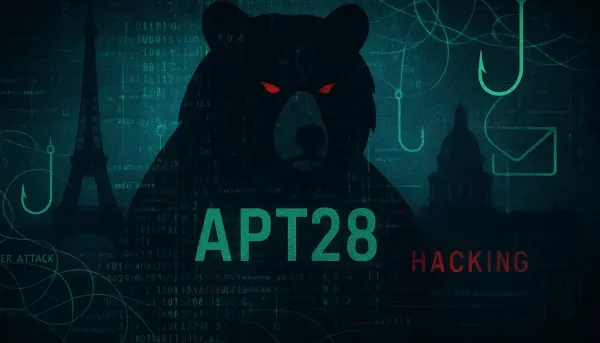
Exploring APT28- Russia's Ongoing Cyber Espionage Threat
The cyber threat landscape continues to evolve, with state-sponsored actors increasingly employing sophisticated tactics to achieve their objectives. One of the most notorious groups in this realm is Russia’s Advanced Persistent Threat 28 (APT28), also known as Fancy Bear or Sofacy. Operating under the auspices of the GRU (Russian military intelligence), APT28 has been linked to a multitude of high-profile cyber incidents over the years. Recent allegations from the French government underscore the group’s continued focus on strategic intelligence gathering and cyber warfare against democratic institutions. This blog post aims to dissect APT28’s recent activities, methodologies, and the broader implications for national cybersecurity.
APT28’s Recent Campaigns and Targeting
According to reports from the French Ministry for Europe and Foreign Affairs and the National Agency for the Security of Information Systems (ANSSI), APT28 has executed a series of coordinated attacks against at least 12 French entities in various sectors, including government, finance, and aerospace. The timeline of these incidents stretches over the past four years, with heightened activity observed since the onset of 2024.
Tactics, Techniques, and Procedures (TTPs)
APT28 employs a variety of TTPs consistent with those detailed in the MITRE ATT&CK framework. Their approach primarily hinges on:
-
Initial Access:
- Phishing: Phishing remains a central tactic, with APT28 crafting tailored emails to compromise user credentials.
- Exploitation of Vulnerabilities: Utilizing advanced exploits, including the zero-day vulnerability CVE-2023-23397, the group has successfully infiltrated its targets.
- Targeted Infrastructure: Initial access strategies focus on webmail systems and inadequately protected edge devices, including routers and VPNs.
-
Execution and Persistence:
- The group has demonstrated a focus on achieving short-term objectives, targeting conversations and credentials rather than establishing prolonged access to networks.
-
Infrastructure Utilization:
- APT28 heavily relies on “low-cost, ready-to-use” outsourced infrastructure. This includes rented servers and free web hosting, which bolster operational anonymity and complicate detection by cybersecurity teams.
Noteworthy Campaigns
In ANSSI’s reports, APT28’s activities include persistent targeting of Roundcube email servers, alongside phishing aimed at users of popular email providers such as Yahoo and Outlook. The group’s ability to leverage compromised routers reinforces their stealthy operational model, as they manipulate legitimate infrastructure to conduct malicious activities.
Additionally, the group’s historical context is marked by attacks ahead of significant political events, such as the interference in the 2017 French elections and the campaign to destabilize the 2024 Paris Olympics. This pattern of election interference align with broader geopolitical strategies utilized by state-sponsored actors to undermine rival nations.
Broader Implications and Responses
The ramifications of APT28’s activities extend beyond immediate data theft; they signal a concerning pattern of hybrid warfare characterized by cyber-attacks, disinformation campaigns, and attempts to manipulate public perception. Notably, the unified response from NATO and other national governments highlights the collective threat posed by such state-sponsored groups.
Attempts made by France to address this threat include:
- Policy and Legislation: France is poised to enact tougher cybersecurity laws aimed at defending its institutions and fostering collaboration with EU allies.
- Investment in Cyber Defense: The French government has increased funding for its cyber defense agency, enhancing capabilities to preempt and respond to malicious cyber activities.
Recent cyber incidents underscore the necessity for organizations to adopt proactive cybersecurity strategies, such as implementing robust security frameworks like NIST or CIS, increasing end-user awareness training, and regularly updating software and infrastructure.
Conclusion
APT28 represents one of the most significant threats facing nations in the modern cyber landscape. With a portfolio of tactics honed over decades, the group’s activities expose the vulnerabilities of even the most robust systems. As nations grapple with the implications of cybersecurity on sovereignty and stability, sharing intelligence, reinforcing defenses, and fostering international cooperation emerge as key strategies to mitigate the impact of such persistent threats.
In the face of APT28’s continued operations, organizations and government entities must remain vigilant, employing comprehensive threat intelligence methodologies to fortify their defenses against the backdrop of an evolving cyber threat landscape.